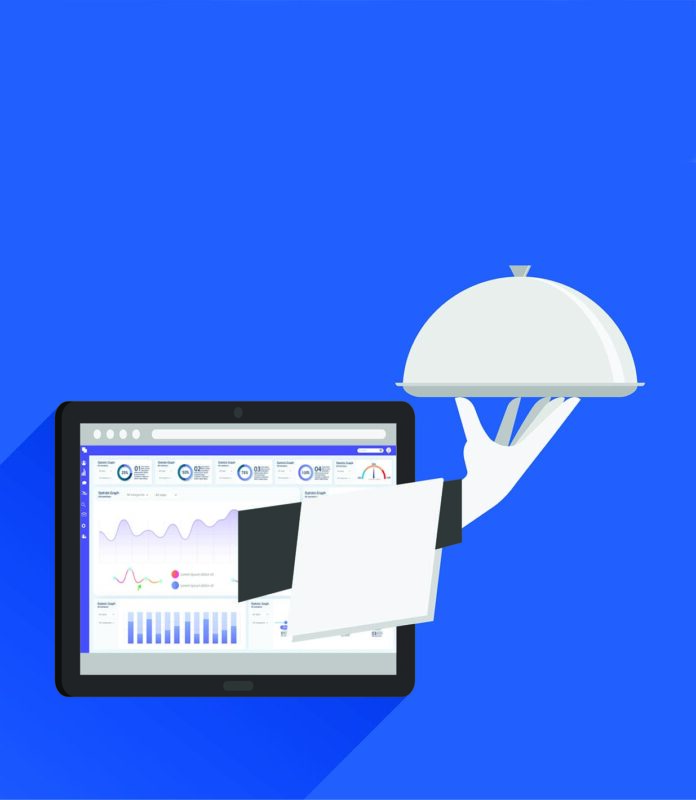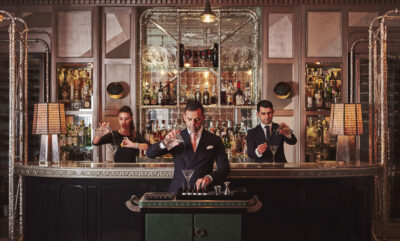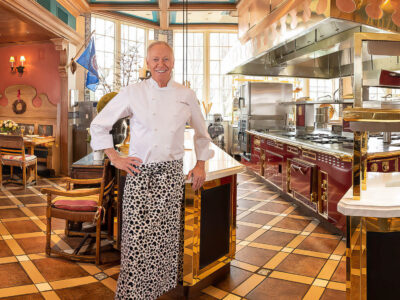
Data Dining
Is it a restaurant . . . or is it the CIA?
The show Cheers got it right: we all like to go where everybody knows our name. But how much more do we want our favorite restaurant to know about us?
The moment you go to dinner and order the shrimp scampi, you think you are judging the restaurant. But guess what? The restaurant is judging you right back.
It’s not that comfortable to think about, but here’s the reality: These days, almost all venues research their guests, often with enough precision to know not just birthdays and dietary restrictions, but which patrons eat too slowly and which are boorish.
Driven by technology and accelerated by pandemic isolation, the restaurant industry and the dining experience has changed profoundly in many ways. Our relationship with restaurants is fraught. If you think you have an issue with exorbitant prices and tipping, you should see what chefs think.
It’s a tough business. The failure rate is high. One commonly cited statistic is that 60 percent of new restaurants fail within the first year, and up to 80 percent may close within the first five. Even among successful operators, margins are thin. So one can’t blame restaurateurs for doing everything possible to optimize for financial success.
Extraordinary hospitality aside, this also includes the formation of restaurant groups (e.g., Danny Meyer’s Union Square Hospitality, the Carbone guys, José Andrés, et al). Groups bring cost consolidation and scale. That provides resources. Resources can buy data. And data is everything.
According to Olo, a B2B company that develops online delivery services for restaurants, 60 percent of restaurant revenue is driven by 20 percent of guests. So, of course restaurants use whatever technology is available to gather information on their customers to analyze and predict guest behavior. Yet, if you ever wonder how much the restaurant actually knows about you, perhaps it’s more than you think.
Companies like Nielsen provide access to detailed consumer insights and data analytics such as demographic information and purchase behavior. Data brokers like Experian use advanced algorithms and data processing techniques to analyze consumer patterns and preferences.
Some restaurants may track customers’ movements within their premises using Wi-Fi tracking technology to gain insights into dwell times, popular areas, and repeat visits. So while they may not actually use this information, yes, they may very well know about your weak bladder.


If you use apps like OpenTable and Resy, you’re pretty much an open book. They provide way more than just reservation details, contact information, and your dining preferences. They can reveal your favorite cuisines, dietary restrictions, and preferred seating options. But they also sell “guest intel” and “robust guest profiles”, including dining history, guest habits, and loyalty data, so that restaurants can prioritize those who dine more and spend more.
But wait, there’s more! SevenRooms, used by the likes of Casa Cipriani and Soho House, appears to be the killer app in this space. You haven’t heard of it—and that’s the point. They gather information behind the scenes to provide what they call a “360-degree view of every guest” that gives their restaurant clients “total control of and insight into the entire guest experience.” Their customer profiles track more than 100 data points per guest, including what you’re spending in real time. Seriously.
Look, if a restaurant wants to milk those finance bros doing omakase for another $1,000 bottle of sake, that’s fine. It’s play money anyway. And I’m perfectly okay with their having my birthday, my allergies, and my go-to cocktail. But do you really want an app knowing where you are at all times? And saying, when you are 500 feet away from them, “Hey, why don’t you come in for a free appetizer?” (The apps can do that, and sometimes do do that for places like McDonalds and Burger King.) Don’t think so.
On the other hand, maybe it doesn’t matter anyway, considering all the information about you that you’ve already given away voluntarily. Amazon knows more about you than your spouse. Walgreens knows what drugs you’re on. Total Wine is keeping track of your unfortunate tequila consumption. And how about those sex toys you purchased from Good Vibrations? But does your maître d’ really need to know your favorite bondassage venue?
So when it comes to privacy, maybe what restaurants know about you isn’t the worst of it. Besides, with advances in artificial intelligence and virtual reality, it’s inevitable that soon enough all servers will be robots anyway, and we’ll be dining out wearing Apple’s new Vision Pro headset. (Who wouldn’t prefer their grilled lobster eaten virtually on a tiki-lit beach in Phuket, or bouillabaisse overlooking Paris from atop the Eiffel Tower?)
Go ahead and spy on me, Fuddruckers. Just make sure the fly is on the wall and not in my soup.
Hero image: composite photos by NatalyaBurova and AntonioFrancois via Getty images



